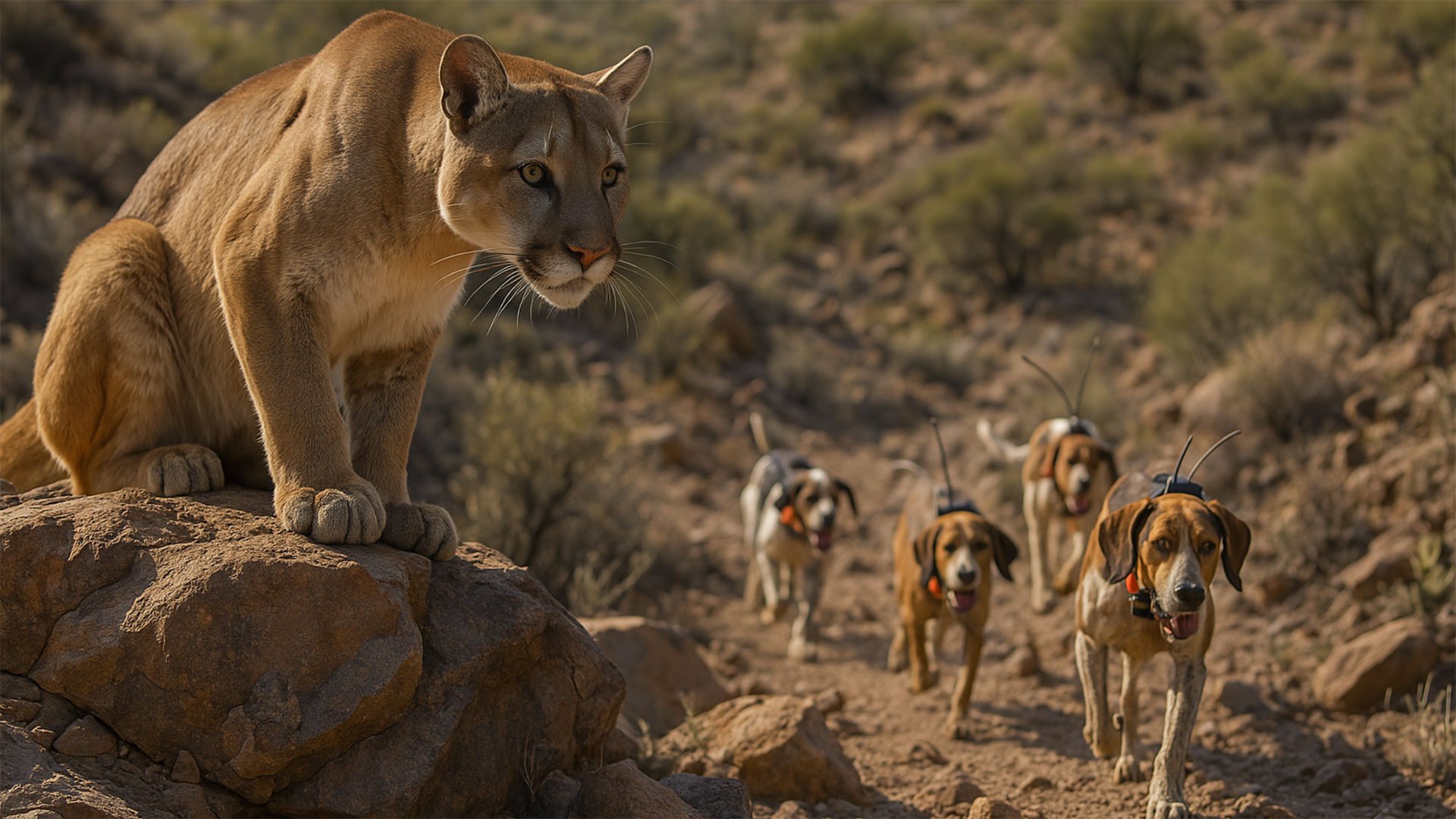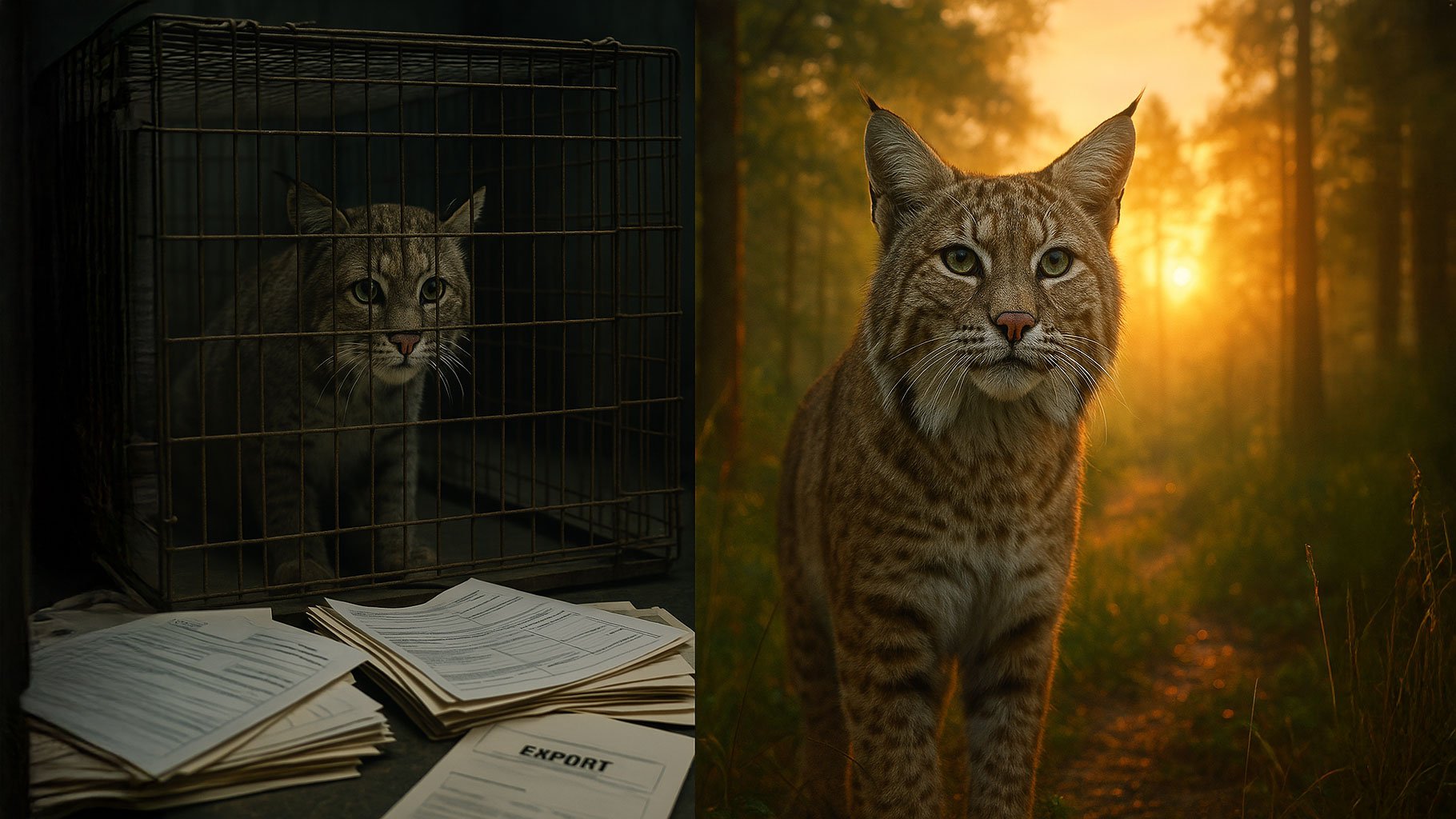The Silent Struggle of Arizona’s Wild Cats
Mountain lion hunted by pack of radio collared dogs AI ChatGPT
In the vast, sun-drenched landscapes of Arizona, where the rugged terrain meets the endless sky, a silent struggle unfolds. Mountain lions, elusive and majestic, navigate the canyons and deserts, embodying the wild spirit of the American Southwest. These apex predators play a crucial role in maintaining the ecological balance, controlling prey populations, and ensuring the health of the ecosystems they inhabit.
Yet, beneath the surface of this natural harmony lies a contentious practice: hound hunting. This method involves releasing packs of dogs, often equipped with GPS collars, to chase and corner wild animals like mountain lions and black bears. Once the prey is exhausted and treed or trapped, hunters arrive to make the kill. Proponents argue it's a traditional practice and a tool for wildlife management. However, conservationists raise alarms about its ethical implications and unintended consequences.
The Controversy Surrounding Hound Hunting
On April 11, 2025, the Arizona Game and Fish Commission faced a pivotal decision. Conservation groups, including the Center for Biological Diversity, petitioned to ban the use of dogs in hunting mammals, citing concerns over animal welfare and the potential harm to endangered species like jaguars and ocelots. Despite passionate arguments, the commission unanimously voted to reject the petition, allowing hound hunting to continue unabated.
Critics of hound hunting highlight several issues:
Stress and Suffering: The chase can last for hours, causing extreme stress to the targeted animals.
Non-Target Species at Risk: Endangered animals, such as jaguars and ocelots, may be inadvertently pursued, leading to potential harm or displacement.
Ethical Concerns: The use of technology, like GPS collars, raises questions about the fairness of the hunt, challenging the principle of "fair chase."
Public Safety: There have been instances where hounds have encountered hikers or pets, leading to dangerous situations.
Between 2020 and 2023, hunters using hounds were responsible for the deaths of 748 mountain lions and 323 black bears in Arizona. Given that the state's mountain lion population is estimated between 1,166 and 1,715, these numbers are significant and concerning.
The Broader Ecological Impact
Mountain lions are not just solitary predators; they are keystone species. Their presence regulates prey populations, which in turn affects vegetation and the overall health of the ecosystem. Disrupting their populations can lead to cascading effects, altering the delicate balance of nature.
Moreover, the practice of hound hunting doesn't just impact the targeted species. The presence of packs of dogs in the wild can disturb other wildlife, disrupt breeding patterns, and lead to habitat abandonment. Endangered species, already struggling to survive, face added pressures from these disturbances.
A Call to Action
The continuation of hound hunting in Arizona poses ethical, ecological, and conservation challenges. As stewards of the environment, it's imperative to question practices that may harm the very wildlife we aim to protect.
What Can You Do?
Educate Yourself and Others: Understanding the implications of hound hunting is the first step. Share information and raise awareness.
Support Conservation Efforts: Organizations like Big Cat Rescue work tirelessly to protect wild cats and their habitats. Consider donating or volunteering.
Advocate for Change: Contact local representatives, participate in public hearings, and voice your concerns about hound hunting practices.
Promote Ethical Wildlife Practices: Encourage and support wildlife management methods that prioritize animal welfare and ecological balance.
Together, we can ensure that Arizona's wild cats continue to roam free, embodying the untamed spirit of the Southwest.
Read more: https://www.azcentral.com/story/news/local/arizona-environment/2025/04/11/hunting-predators-with-packs-of-dogs-remains-legal-arizona/83051404007/



